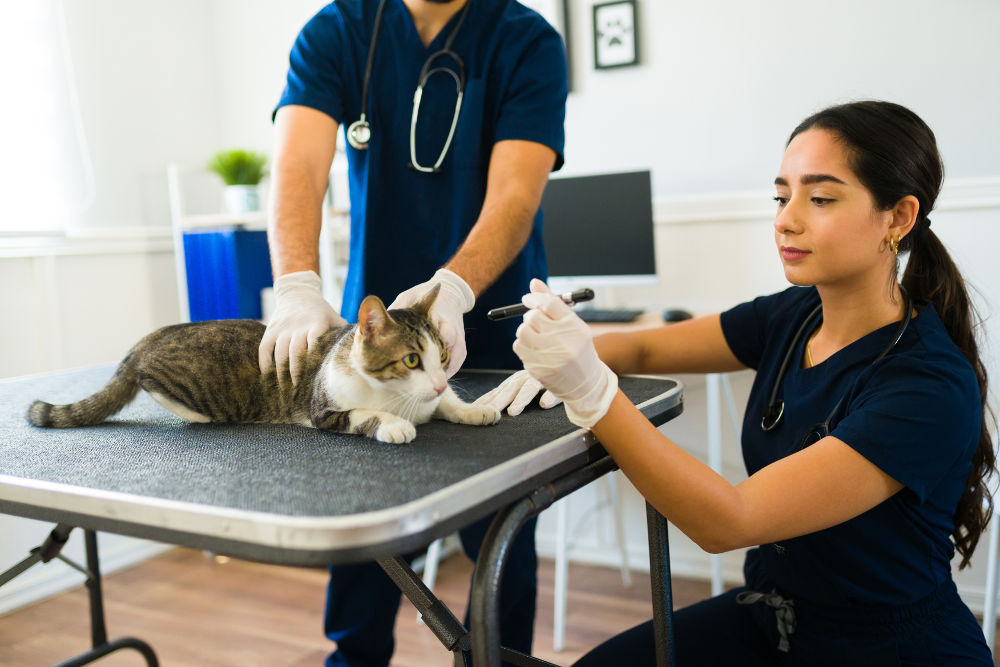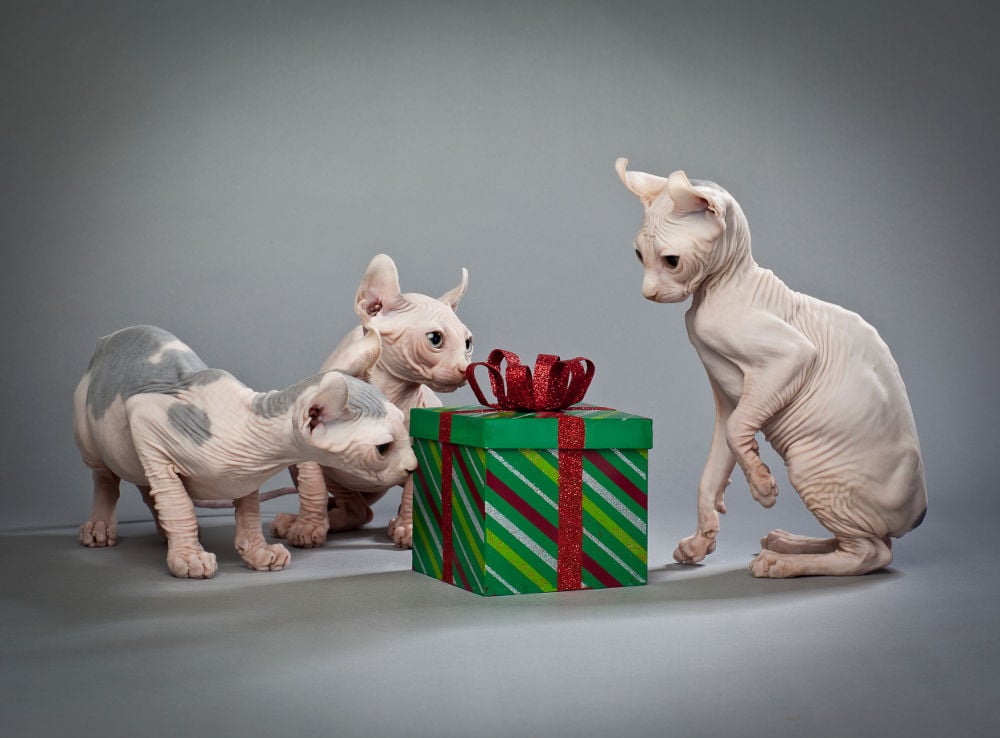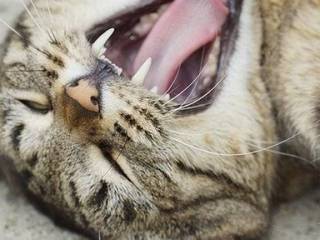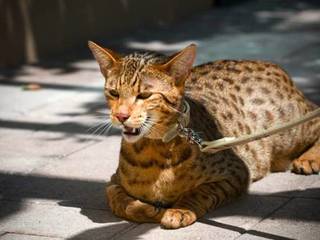Finding responsible cat breeders can be a daunting task, as there are many breeders out there who are more interested in making a profit than in the welfare of their animals. It's important to do your research and find a breeder who is committed to breeding healthy, well-adjusted cats and who follows ethical breeding practices. In this article, we will discuss the factors to consider when searching for a responsible cat breeder, including general guidelines, as well as the importance of pedigree and health screenings. By following these guidelines, you can be confident that you are bringing a happy and healthy new feline companion into your home.
Breeders shouldn't be willing to send kittens home too young
It is generally recommended that kittens be at least 8-12 weeks old before they are separated from their mother and go to their new homes. Most breeders choose to let kittens go to their new homes at between 10 and 12 weeks of age, but some may keep kittens for as long as 14 weeks before letting them go. At this age, kittens have typically received all of their necessary vaccinations and have had the opportunity to learn important socialization and development skills from their mother and littermates. While there may be exceptions to the rule, typically, any breeder who sends kittens home before they are eight weeks old doesn't have their best interests at heart.
Breeders must provide a pedigree if claiming their kittens are purebred
Pedigree cats from reputable breeders should come with papers, also known as a "registration certificate," that documents their ancestry and confirms that they are purebred. The papers are issued by a cat breed registry, which maintains a record of purebred cats and their pedigrees. The papers for a pedigree cat typically include the cat's name, breed, date of birth, and the names of its parents and ancestors. Some breed registries may also include information about the cat's physical characteristics, such as color and markings.
In addition to documenting the cat's ancestry, the papers may also serve as proof of ownership. If you plan to show your cat or breed it in the future, papers may be required in order to participate in these activities.
Breeders should offer a certificate of health from a vet
Reputable cat breeders should provide a certificate of health for the cats they sell. A certificate of health, also known as a veterinary health certificate or certificate of veterinary inspection, is a document that verifies that a cat has been examined by a veterinarian and found to be in good health. It should include information about the cat's age, breed, sex, and any vaccinations or other medical treatments that have been administered. Many kittens start receiving standard vaccinations between 6 and 8 weeks of age. It is important for cat breeders to provide a certificate of health because it helps to ensure that the cats they sell are healthy and free of any medical issues. It also helps to protect the health of the cats being purchased, as well as any other animals that may come into contact with them.
Breeders should perform health screenings and guarantee kittens' health at adoption

Health screenings are tests that are performed on cats to check for genetic health problems. Reputable cat breeders should perform health screenings on their breeding cats to ensure that they are free of genetic health problems that could be passed on to their offspring. Some common health screenings for cats include HCM (Hypertrophic Cardiomyopathy), PKD (Polycystic Kidney Disease), FIV (Feline Immunodeficiency Virus), and FeLV (Feline Leukemia Virus). It's important to ask about the specific health screenings the breeder performs and to request copies of any health clearances. This will help you to ensure that the cats you are considering are as healthy as possible.
It is important for cat breeders to provide a certificate of health for the cats they sell. This document, also known as a veterinary health certificate or certificate of veterinary inspection, verifies that the cat has been examined by a veterinarian and found to be in good health. It should include information about the cat's age, breed, sex, and any vaccinations or other medical treatments that have been administered. Providing a certificate of health helps to ensure that the cats being sold are healthy and free of any medical issues, and it also helps to protect the health of the cats being purchased, as well as any other animals that may come into contact with them.
Similarly, many reputable breeders will offer a health guarantee, a promise made by a breeder to replace or reimburse the cost of a cat if it develops certain genetic health problems within a certain time frame after the sale. A health guarantee should be provided in writing and should outline the specific conditions covered and the terms of the guarantee. It's important to carefully read and understand the terms of any health guarantee offered by a breeder, as some may have limitations or exclusions that could impact your ability to claim on the guarantee. It's also a good idea to get a copy of the health guarantee in writing, as it can provide additional protection in the event of a dispute.
They should offer genetic testing
It is important for cat breeders to provide a certificate of health for the cats they sell. This document, also known as a veterinary health certificate or certificate of veterinary inspection, verifies that the cat has been examined by a veterinarian and found to be in good health. It should include information about the cat's age, breed, sex, and any vaccinations or other medical treatments that have been administered. Providing a certificate of health helps to ensure that the cats being sold are healthy and free of any medical issues, and it also helps to protect the health of the cats being purchased, as well as any other animals that may come into contact with them.
Reputable cat breeders should also be able to provide information about the cat's ancestry and any relevant genetic testing that has been done. This can help buyers to understand the health risks and genetic predispositions associated with a particular breed of cat. It is generally recommended that cat breeders provide genetic testing for their kittens to help ensure their health and well-being. Genetic testing can help to identify any potential health issues or genetic abnormalities that a kitten may have, and it can allow breeders to make informed decisions about which animals to breed and sell. By providing genetic testing for their kittens, cat breeders can help to ensure that the animals they sell are healthy and free of any genetic conditions that could affect their quality of life. It is important for buyers to ask breeders about the genetic testing that has been done on the kittens they are considering purchasing, as this can help to ensure that they are making an informed decision.
How old is the mother cat?
A mother cat, also known as a queen, should not be bred until she is at least one year old. This is because cats reach sexual maturity at around six months of age, but their bodies are not fully developed and may not be ready for the physical demands of pregnancy and childbirth. In addition, breeding a queen more than once per year can put a lot of strain on her body and may lead to complications during pregnancy and childbirth. It is important to allow the queen time to recover between litters and to monitor her health closely during pregnancy and lactation.
Can you visit the cats/kittens?
Visiting a cat breeder in person allows you to see the conditions in which the cats are raised and to ask questions about the health and temperament of the kittens. This can give you a better sense of the quality of the breeding program and help you find a healthy and well-adjusted kitten. However, it isn't uncommon for breeders to not allow visits. This by itself isn't necessarily a red flag. Many breeders have their cats in their own homes and don't want to have strangers visiting frequently. Visitors could also cause stress to the mother cats. If they don't allow visitors, a good breeder will offer transparency in other ways, like frequent updates and pictures of the mother cat, kittens, and their living environment.
What is their delivery policy?
There is no hard and fast rule about whether cat breeders should or shouldn't deliver cats to their new owners. Some breeders may be willing to deliver the cat to its new home, while others may require the owner to pick up the cat in person. Those to be wary of, however, are those who claim they offer shipping but expect full payment before shipping the cat to you. Similarly, it may be a bit of a red flag if they are willing to ship a cat without screening you as a buyer first.
It is not necessarily a red flag simply if a cat breeder ships cats, as there can be legitimate reasons for this. However, it is important to carefully research the breeder and ask questions to ensure that the cat will be handled and transported safely. Some questions you may want to ask include how the cat will be transported, how it will be cared for during transport, and what the breeder's policy is in the event of something going wrong during transport. It is also important to consider that shipping a cat can be stressful for the animal, so you should carefully consider whether this is the right choice for you and your new pet.
Does the breeder stay in touch with former kittens/adopters?
Cat breeders should offer continued support to buyers of their cats, especially for those who are purchasing a purebred kitten or cat. This support can take many forms, including answering questions about the care and training of the cat, providing guidance on health issues, and offering advice on behavior problems. Some specific ways that breeders may offer support include providing a written contract or agreement, offering a health guarantee or warranty, providing ongoing guidance and support through various means of communication, offering information and resources on the care and training of the cat, providing access to a network of professionals who can offer advice and support, and offering to take the cat back if the buyer is unable to care for it. It is important for breeders to be responsive and helpful to buyers in order to build trust and establish a good reputation, and by offering continued support and assistance, they can help ensure that the cats they sell are well-cared for and have a good quality of life.
Does the breeder provide references?
A reputable cat breeder should be willing to provide references from previous customers, as well as veterinarians who have worked with their cats. When contacting references, ask about the health and temperament of the cats they purchased from the breeder, as well as any experiences they had with the breeder during the purchasing process. You can also ask about the overall condition of the breeding facility, including whether it was clean and well-maintained and whether the cats appeared to be well-cared for. In addition to contacting references provided by the breeder, you can also ask for references from local cat breed clubs or associations, as they may be able to provide additional information about the breeder's reputation.
Pricing

If a breeder is offering cats at a price that is significantly lower than what other reputable breeders in your area are charging, it could be a sign that the breeder is more interested in making a profit than in the welfare of the animals. Similarly, if they are asking for prices that are astronomically higher than other reputable breeders, this could also be a red flag indicating that the breeder is in it more so for the promise of money than for the health of the animal or finding good homes.
A reputable breeder should be upfront about all costs associated with the purchase of a cat, including any fees for breeding rights, registration, transportation, or health screenings. If a breeder is unwilling to disclose this information or tries to hide fees in the fine print, it could be a red flag.
Does the breeder screen buyers?
Cat breeders have an important role in ensuring that the cats they breed are placed in responsible and loving homes. To do this, they may use several methods to screen potential buyers. One way is to ask questions about the potential buyer's living situation, experience with pets, and plans for the cat. This can help the breeder gauge the potential buyer's readiness and ability to care for a cat. Another method is to require a contract, which outlines certain terms and conditions that the potential buyer must agree to, such as providing proper care for the cat and spaying or neutering the cat if it is not being used for breeding.
Some breeders may also conduct a home visit to see firsthand that the living environment is suitable for a cat. In addition, they may request references from veterinarians or previous pet owners to get a sense of the potential buyer's experience and responsibility as a pet owner. By screening potential buyers, breeders can ensure that their cats are placed in homes where they will be well cared for and loved.
There are several additional considerations that cat breeders may take into account when screening potential buyers. For example, they may ask about the potential buyer's work schedule and availability to care for the cat, as well as the presence of any children or other pets in the home. They may also ask about the potential buyer's financial stability and ability to afford the ongoing costs of caring for a cat, such as food, litter, veterinary care, and other necessities. In addition, some breeders may have specific requirements or preferences in terms of the age and lifestyle of the potential buyer, as well as their experience with cats or other pets.
Is the breeder registered?
There are several reasons why cat breeders should be registered. Registries help to ensure that breeders follow ethical and responsible breeding practices, such as breeding for good health and temperament and avoiding inbreeding or overbreeding. They also allow for the tracking of a cat's ancestry and lineage, which is important for maintaining the standards of specific breeds. In addition, registries provide a centralized source of information for potential buyers, including information about the breed, health screenings, and available litters. Lastly, registries help to prevent the sale of cats from unethical sources, such as puppy mills or kitten factories, by holding breeders to certain standards. Overall, registering cat breeders promotes responsible breeding practices, protects the health and welfare of cats, and provides valuable information to potential buyers.
Breeders can often register with cat fancy organizations, also known as cat breed clubs, which are dedicated to specific breeds of cats and often have their own registration and breeding standards. Examples include The International Cat Association (TICA) and the Cat Fanciers' Association (CFA). Breeders can also register with national cat registries. These organizations are often affiliated with cat fancy organizations and maintain a registry of purebred cats. Examples include the American Cat Fanciers Association (ACFA) and the Canadian Cat Association (CCA).
Do they have a buyer/seller contract?
A cat breeder may provide a written contract when selling a kitten or cat. In fact, it is best if they do have a contract. This contract serves as a legal agreement between the breeder and the buyer and outlines the responsibilities and expectations of both parties. The contract may include the price and any deposit required to reserve the kitten, the breed, sex, age, and medical history of the kitten, any genetic or health guarantees provided by the breeder, the terms of the sale, including whether the kitten is being sold as a pet or for breeding purposes, and the buyer's responsibilities including proper care, nutrition, and medical treatment for the kitten. The breeder's responsibilities may also be outlined in the contract and may include providing a health certificate and necessary documentation. It is important to carefully review the contract before signing and to ask any questions to ensure a full understanding of the rights and responsibilities of both parties. Reputable breeders prioritize the health and well-being of their cats.
Do they have a spay/neuter policy?
Reputable cat breeders generally have a spay and neuter policy for kittens because it is considered best practice for responsible breeding. This helps to reduce the number of unwanted cats and kittens and can also prevent certain health problems that can arise from breeding. Spaying and neutering can also have behavioral benefits, such as reducing spraying and aggression. It is important for buyers or adopters to understand the importance of spaying and neutering and to follow through with the procedure once the kitten is old enough. Reputable breeders should be transparent about their spay and neuter policy and be willing to discuss it with potential buyers or adopters.
How to avoid scammers
Look for reviews and ask for references from previous buyers. A reputable breeder should have no problem providing this information. Be wary of breeders who ask for payment upfront: It is not uncommon for a breeder to ask for a deposit, but be cautious of any breeder who asks for the full payment before you have had a chance to see the cat and make sure it is healthy. Trust your instincts: If something doesn't feel right, it probably isn't. Don't be afraid to walk away from a breeder if you have any doubts about their legitimacy.
A red flag is if a breeder is pressuring you to make a decision without giving you time to do your research or think things through, it could be a sign that they are more interested in making a sale than in finding the right home for the cat.
Conclusion
When searching for a good cat breeder, it is essential to prioritize the health and well-being of the cats. Look for breeders who ensure their cats receive proper medical care and provide them with a clean and comfortable living environment. It is also important to choose a breeder who is open and transparent about their breeding practices and is willing to answer your questions and provide references upon request. In addition to these factors, consider the breeder's knowledge about the breed and their willingness to provide information about the specific cat you are interested in. While it may take some time and effort to find a good breeder, it is worth it in the long run to have a healthy and well-cared-for cat. By doing your research and asking the right questions, you can find a breeder who aligns with your values and provides you with a furry friend that will bring joy and companionship for years to come.
FAQ
Is cat breeding profitable?
Cat breeding can be profitable, but the level of profitability depends on various factors such as the breed, demand, quality of the cats, and your ability to effectively manage a breeding business. Some factors to consider when determining the profitability of cat breeding include: Breed and demand: Certain cat breeds are more popular and in-demand than others, and can potentially bring higher profits. However, the popularity of breeds can change over time, so it's essential to stay updated on market trends. Quality: Breeding high-quality, healthy cats with good pedigrees can increase the value of your kittens. Investing in proper healthcare, nutrition, and socialization of your cats can lead to better outcomes and higher prices. Reputation: Establishing a solid reputation as a responsible, ethical breeder can attract more customers and enable you to charge a premium for your kittens. This often involves being knowledgeable about the breed, following ethical breeding practices, and providing excellent customer service. Expenses: Cat breeding requires a significant financial investment. Expenses include purchasing breeding cats, veterinary care, vaccinations, food, grooming, and housing. You'll also need to consider the costs associated with advertising, attending cat shows, and potentially hiring staff. Time commitment: Breeding cats is time-consuming and requires a great deal of dedication. It involves not only taking care of the cats, but also managing the business side of things, including marketing, sales, and customer service.
Is cat breeding ethical?
Responsible breeding practices: Ethical breeders prioritize the health and welfare of their cats. This includes conducting regular health checks, genetic screening to avoid hereditary diseases, providing proper nutrition, socialization, and living conditions. Responsible breeders also adhere to breeding guidelines and do not overbreed their cats, ensuring the animals have sufficient rest between litters. Overpopulation and shelter animals: One of the primary concerns about cat breeding is overpopulation. Many shelters and rescue organizations struggle to find homes for millions of unwanted cats and kittens each year. Some argue that breeding cats contributes to this problem and that it is more ethical to adopt from shelters or rescue organizations. Preservation of breeds: Some people argue that ethical cat breeding helps preserve specific breeds and their unique characteristics. These breeders aim to maintain breed standards and improve the health of their chosen breed by carefully selecting breeding pairs and monitoring genetic diversity. Breeding for profit: Breeding cats solely for profit can lead to unethical practices, such as neglecting the health and welfare of the animals, overbreeding, or producing kittens with genetic issues due to irresponsible breeding practices. Education and support: Ethical breeders educate potential buyers about the breed, its needs, and the responsibilities of cat ownership. They also provide ongoing support to the new owners, helping them care for their new pets.
Do cat breeders have to be registered?
Registration requirements for cat breeders vary depending on the country, state, or region in which you live. In some places, cat breeders may be required to register with a local or national governing body, while in others, registration may be voluntary or not required at all. Registering as a cat breeder can have several benefits, even if it's not legally required: Credibility: Registering with a reputable cat association, such as The International Cat Association (TICA) or the Cat Fanciers' Association (CFA), can enhance your credibility as a breeder. It shows potential buyers that you adhere to specific standards and follow ethical breeding practices. Pedigree registration: If you breed pedigree cats, registering with a recognized organization allows you to register your cats and kittens, providing documentation of their lineage and verifying their pedigree. Networking: Being part of a breeder organization can provide valuable networking opportunities, allowing you to connect with other breeders, share knowledge, and stay informed about the latest developments in your chosen breed. Cat shows and competitions: Registering with a recognized organization allows you to participate in cat shows and competitions, helping you showcase your cats, gain recognition, and potentially increase the value of your kittens.






